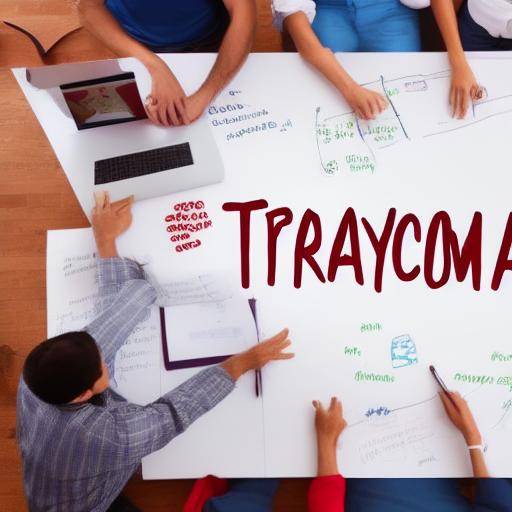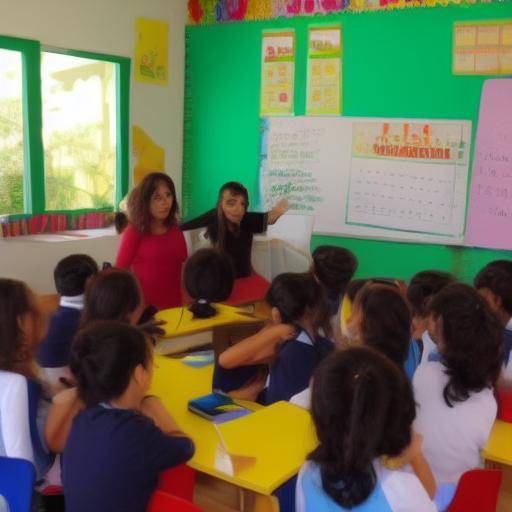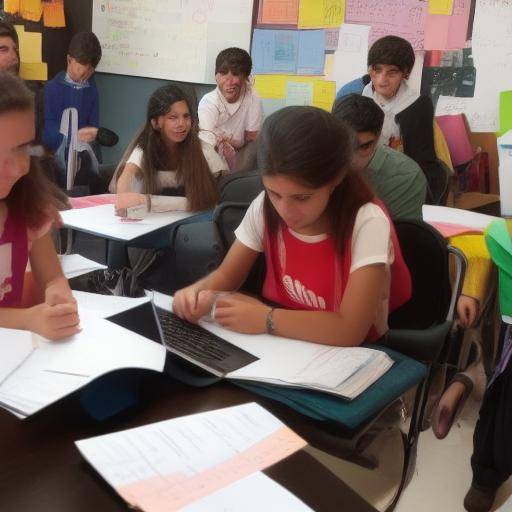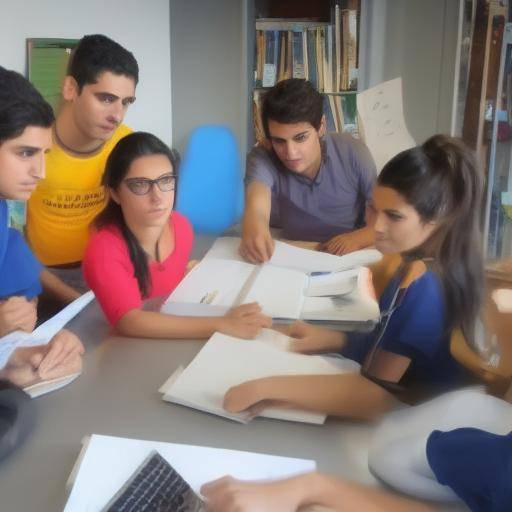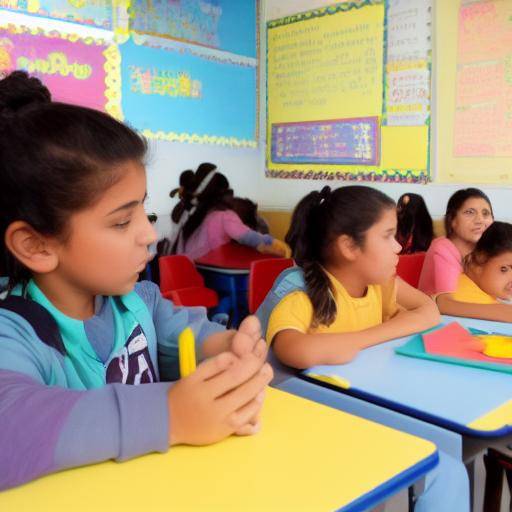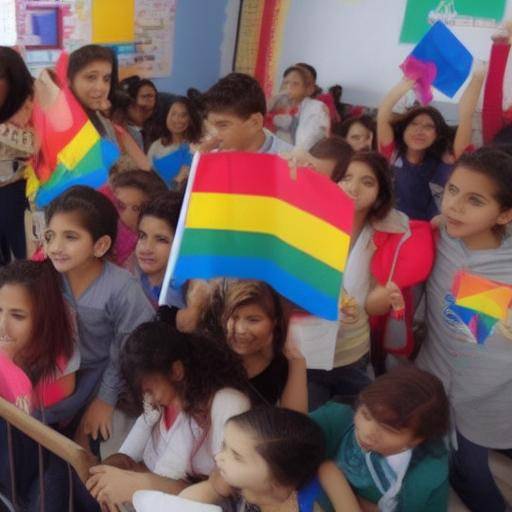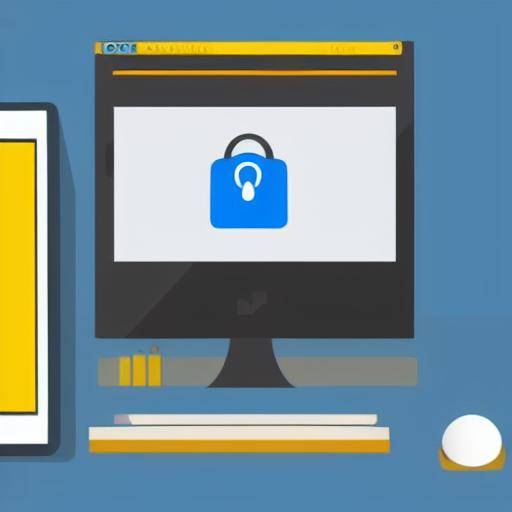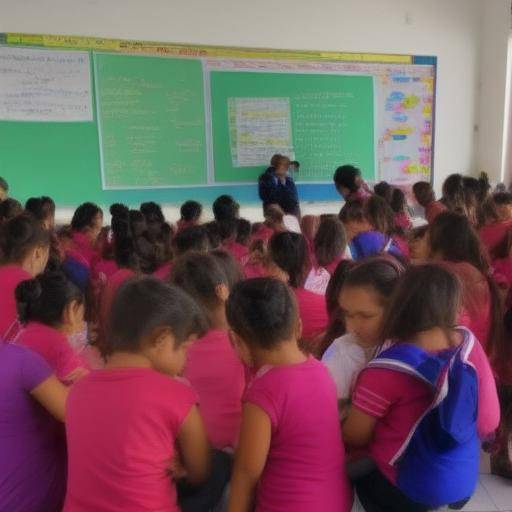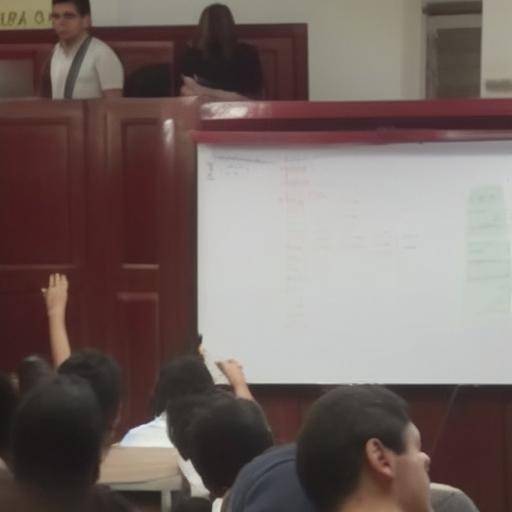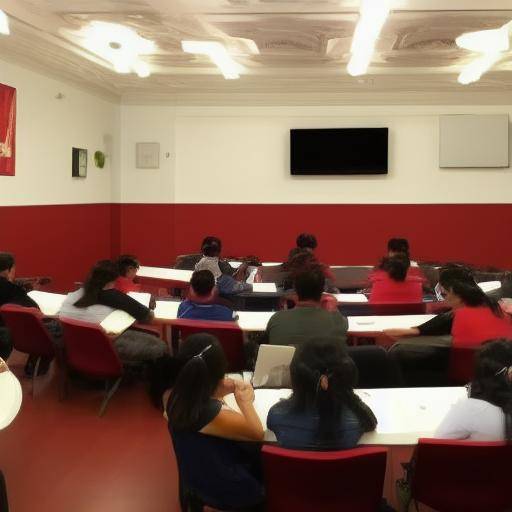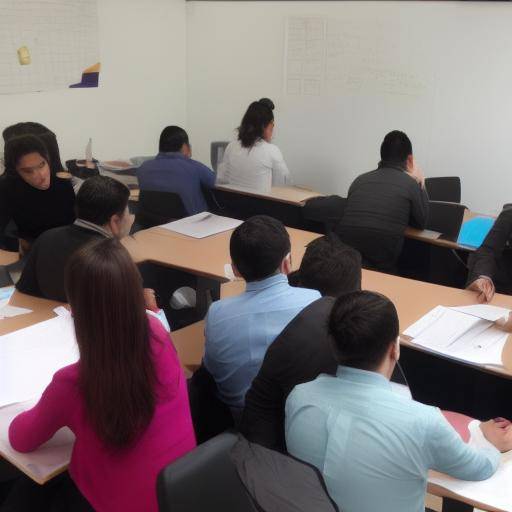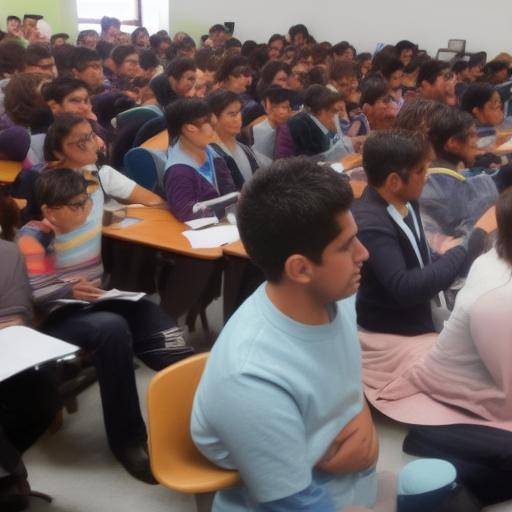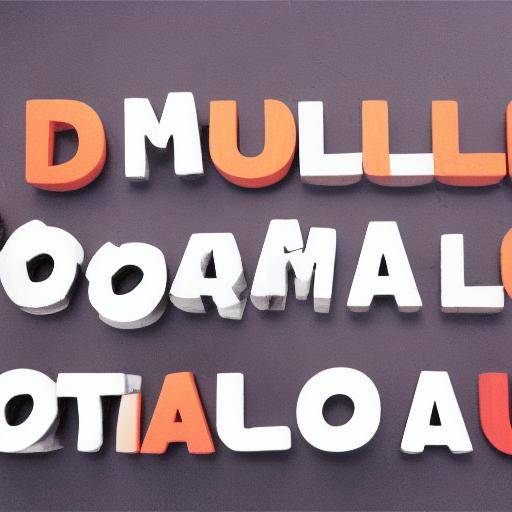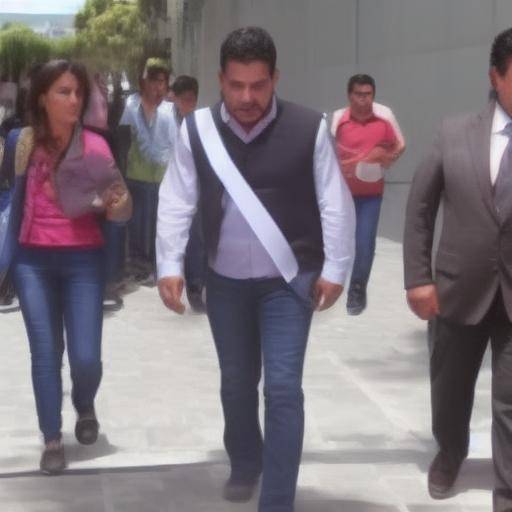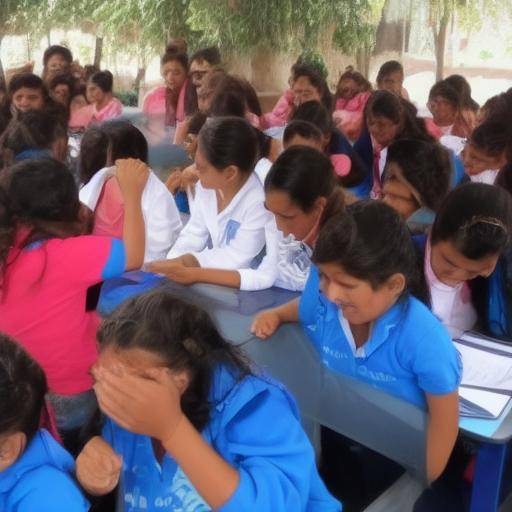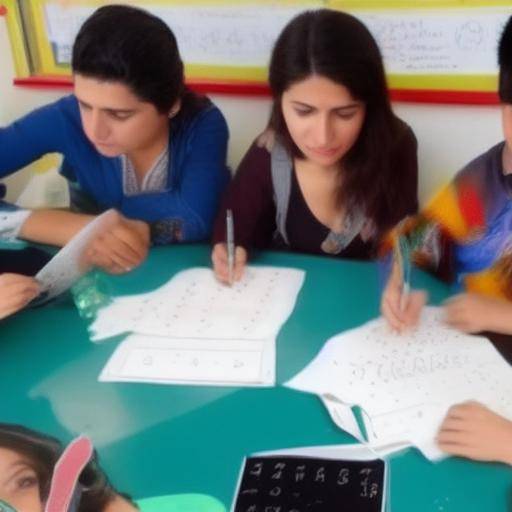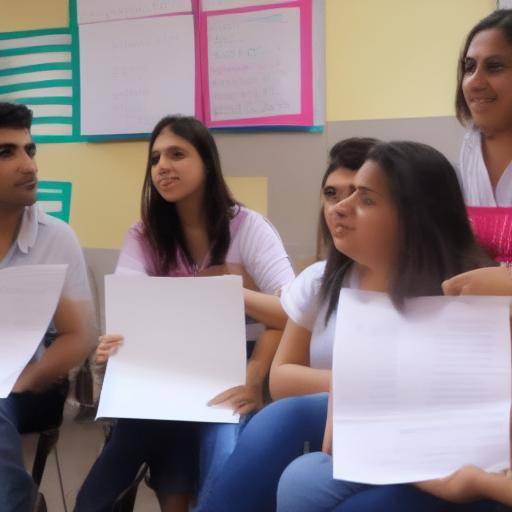
Introduction
At present, the inclusive student assessment has become a fundamental approach to ensuring that all students, regardless of their individual differences, have the opportunity to learn and demonstrate their knowledge on an equitable basis. This article aims to provide educators, parents and educational professionals with a deep understanding of effective strategies for inclusive evaluation, with a special focus on the needs of students. From the historical scope and current challenges to future forecasts, this content offers a complete look at this important educational issue.
History and Background
Inclusive student assessment has evolved considerably over time. In its inception, the evaluation focused on rigid metrics and did not consider individual student differences. However, as the understanding of the diversity and unique needs of students has grown, inclusive evaluation has gained relevance.
In the twentieth century, the paradigm of inclusive education began to take shape. Key figures, such as Maria Montessori and Lev Vygotsky, advocated an educational approach that took into account individual student differences. This shift in focus influenced the way in which evaluation was conceived in the educational environment, promoting the search for strategies that would enable learning to be evaluated in a fair and inclusive manner.
The enactment of inclusive educational laws and policies, such as the Education for All Children with Disabilities Act in the United States, marked a crucial milestone in establishing the legal framework for the implementation of inclusive evaluation practices. These advances paved the way for the wider adoption of evaluation strategies that recognize and value the diversity of students.
Analysis in Deep
Inclusive assessment provides many benefits, including the promotion of an equitable learning environment and the promotion of the comprehensive development of all pupils. In addressing individual differences in the evaluation process, the active participation and commitment of students are encouraged, which in turn contributes to greater academic success.
However, inclusive evaluation also entails significant challenges. The diversity of students implies the need to adapt the evaluation strategies to ensure that each student has the opportunity to demonstrate their learning in an authentic way. In addition, effective implementation of inclusive evaluation requires the development of specific skills by educators, as well as continued support at the institutional and governmental levels.
Comprehensive review
Inclusive assessment strategies should effectively address the diversity of students, ensuring that each student receives a fair and meaningful assessment. Some of the most effective practices include project-based evaluation, continuous training evaluation, and the use of specific tools and adaptations for individual student needs.
Comparative analysis
By comparing inclusive assessment with traditional strategies, it is clear that inclusive evaluation adopts a much wider and holistic approach. While traditional assessment tends to focus on measuring standardized skills, inclusive evaluation recognizes the wealth of individual student diversity and seeks to evaluate learning in diverse ways and in meaningful contexts for each student.
Practical Tips and Accessible Advice
Here are some practical tips for effective inclusive evaluation strategies:
- Promote the active participation of students in the evaluation process.
- Use a variety of evaluation methods that adapt to the individual needs of students.
- Providing specific and constructive feedback that allows students to understand and improve their performance.
- Incorporate self-evaluation and co-evaluation as integral components of the evaluation process.
Industry Perspectives and Expert Reviews
Experts in the field of education agree that inclusive evaluation is a fundamental pillar for promoting an equitable and enriching educational environment. In addition, they highlight the importance of continuing training of educators in inclusive evaluation strategies and institutional support for their effective implementation.
Case Studies and Applications in Real Life
Through real case studies, it is possible to see how inclusive evaluation strategies have positively impacted student learning and development. These cases specifically illustrate the effectiveness of inclusive strategies, providing a practical and tangible framework for implementation.
Future Trends and Predictions
In the future, the approach to inclusive evaluation is expected to continue to be strengthened, with a particular emphasis on the customization of learning and the adaptation of evaluation strategies to the specific needs of each student. In addition, the integration of technology into the evaluation process could open up new possibilities to ensure equity and inclusion in the student assessment.
Conclusions
In short, inclusive evaluation is critical to ensuring that all students have the opportunity to demonstrate their learning on an equitable basis. Inclusive evaluation strategies not only promote equity and educational justice, but also enrich the learning process by recognizing and assessing the diversity of students. By continuing to implement and refine these strategies, the educational environment can promote an inclusive and enriching learning environment for all.
FAQs
What are some specific strategies to evaluate students with special needs?
Strategies for assessing students with special needs may include the adaptation of evaluation materials, the provision of specific support during the evaluation process, and the use of technological tools to facilitate student participation.
How does inclusive evaluation influence the development of long-term students?
Inclusive evaluation promotes the integral development of students by enabling them to demonstrate their learning in a meaningful and authentic way. This helps to strengthen your self-esteem, confidence and motivation towards learning throughout your life.
What role do parents and community play in promoting inclusive evaluation?
Parents and the community can play an active role in promoting inclusive evaluation by supporting the implementation of equitable educational practices, participating in collaboration with educators, and advocating equal opportunities for all students.
How can inclusive evaluation be addressed in limited-resourced educational settings?
In environments with limited resources, it is essential to adopt creative and flexible strategies to adapt inclusive assessment practices to specific circumstances. This could include the use of available resources in an innovative and collaborative manner.
What is the impact of inclusive evaluation strategies on the motivation and commitment of students to learning?
Inclusive evaluation strategies can contribute significantly to the increased motivation and commitment of students, as they provide them with the opportunity to participate actively in their learning process and to demonstrate their understanding authentically.
How does inclusive evaluation promote educational equity?
Inclusive evaluation promotes educational equity by recognizing and assessing the diversity of students, allowing them to participate in fair and meaningful assessments that take into account their individual differences. This helps to reduce educational disparities and inequalities.
Conclusion
In conclusion, inclusive evaluation is not only essential for the equitable development of students, but also enriches the educational environment by recognizing and assessing diversity. In implementing inclusive strategies, it is achieved to promote an environment of learning that respects and celebrates individual differences, preparing students for a diverse and constantly changing future.
With these tips and knowledge, educators, parents and educational professionals can take concrete steps towards the effective implementation of the inclusive evaluation, thus benefiting the entire educational community.
Finally, this article is only the beginning of an evolving conversation about inclusive evaluation. As the understanding and practice of inclusive evaluation progresses, new ideas, approaches and strategies are expected to continue to emerge to ensure a more inclusive and equitable educational future for all students.
With this in mind, we hope that this resource will provide a solid basis for those who seek to understand and promote inclusive evaluation in their educational communities.





